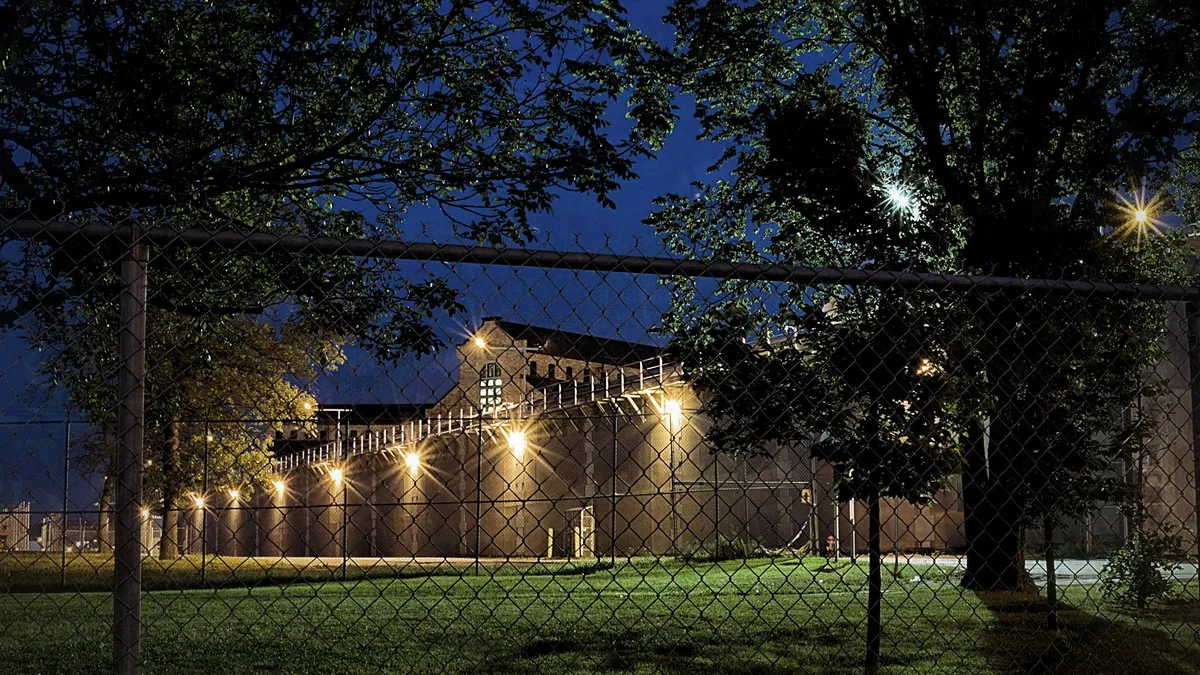Dive Brief:
- A program launched Nov. 17 by the National Black Chamber of Commerce (NBCC) seeks to educate U.S. small businesses about training programs for released offenders, the NBCC said in a statement.
- The program, Project Rebound, also aims to help reduce recidivism. According to the U.S. Department of Health and Human Services' (HHS) Office of Disease Prevention and Health Promotion, more than 600,000 Americans are released from prisons each year, but 2 in 3 are rearrested within three years of their release, and more than 50% are incarcerated again.
- Formerly incarcerated people "often face negative perceptions upon returning to the community," but research shows employment is "essential" in reducing recidivism rates, according to the NBCC. "We need to have compassion for those who stray away from law and order, and bring them back into the fold to make sure that our society is the best society it can be," said Harry C. Alford, the organization's president and CEO.
Dive Insight:
In recent years, multiple organizations have promoted the expansion of employment opportunities for formerly incarcerated Americans. One example is the Society for Human Resource Management, which announced in 2019 an initiative together with partners including Koch Industries and the U.S. Chamber of Commerce to encourage employers to pledge they would hire workers with criminal backgrounds.
Such efforts have suffered setbacks during the COVID-19 pandemic, the nonprofit National Skills Coalition said in April, with re-entry support lacking during the pandemic's early stages as localities sought to reduce jail and prison capacity. The pandemic has also heavily impacted incarcerated Americans. A research letter published in July by the Journal of the American Medical Association found that the COVID-19 case rate for prisoners was 5.5 times higher than that of the general U.S. population.
Racial and ethnic disparities also exist in the U.S. incarceration rate, according to HHS, with research showing the Black and Hispanic people are disproportionately arrested and convicted of offenses. Communities with high rates of recidivism also tend to be non-white and have higher rates of crime, poverty and unemployment, per HHS.
"Incarceration and subsequent recidivism unfortunately continue to impact our community," Larry D. Ivory, chairman of the NBCC, said in the organization's statement. "This has been a big focus for us for quite some time, and we hope to work toward the common goal of reducing the risk of reoffending."
A number of employers have adopted recruiting policies under a strategy of "second-chance" hiring, which seeks to support those with criminal backgrounds as they re-enter the workforce. Last year, JPMorgan Chase said it would seek to collaborate with business, policy and community leaders to address barriers to employment for those with past arrests or convictions. The company also said it would ban employment application questions asking job seekers about their criminal histories. That decision follows a wave of state and local legislation seeking to "ban the box" from employment discussions.
Other employers have gone beyond just banning the box in favor of hiring models with even fewer barriers. In February, retailer The Body Shop said it would implement an "open hiring" model for certain summer positions. Under the model, the store said it would not conduct a background test or drug screening for the positions. Arizona-based Televerde operates call centers in correctional facilities, and the company hires and trains both incarcerated and formerly incarcerated people.
Employers that seek to hire formerly incarcerated people may face internal hurdles, including biases held by other employees about those who have served their time, speakers said at a 2019 U.S. Chamber of Commerce Foundation event. But employers who launched such hiring initiatives said that transparency and leadership support can help managers and HR staff make the transition.














